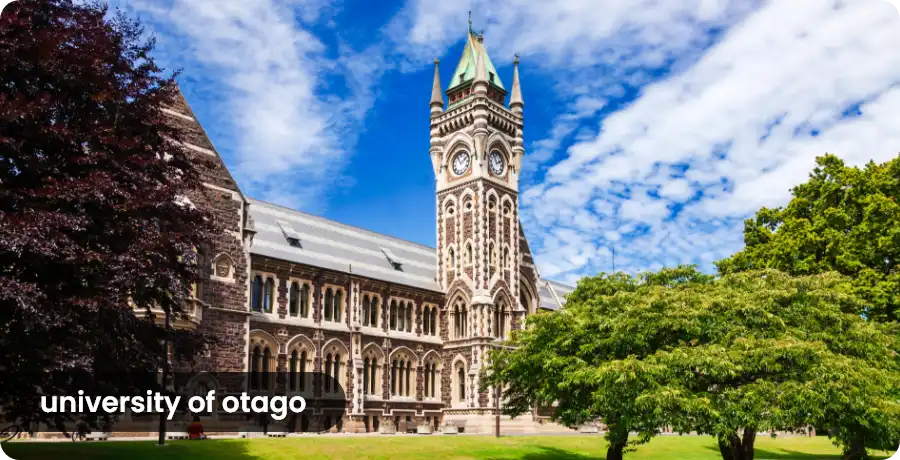Study Opportunities in New Zealand for Indian Students:
Studying in New Zealand involves various costs, including tuition fees, living expenses, and additional expenses such as health insurance and textbooks. International students in New Zealand can expect to pay between NZD 22,000 and NZD 32,000 per year for undergraduate programs and NZD 26,000 and NZD 37,000 per year for postgraduate programs. Living expenses range from NZD 15,000 to NZD 27,000 per year, depending on location and lifestyle.
Simplifying the Study Visa Process for Indian Students:
Obtaining a study visa for New Zealand involves:
-
Meeting specific requirements, including providing proof of acceptance into a recognized institution.
-
Demonstrating sufficient funds to cover tuition and living expenses.
-
Meeting health and character requirements.
While the visa application process may require careful preparation and documentation, New Zealand's transparent immigration policies and supportive visa processing systems make it relatively straightforward for eligible applicants.
Affordability Analysis: Is New Zealand Expensive for Indian Students?
Studying and living expenses in New Zealand can vary depending on the program of study, city of residence, and personal lifestyle choices. International students pay higher tuition fees than domestic students, but scholarships and financial aid can help. When calculating the cost of living in New Zealand, consider living expenses such as accommodation, food, transportation, and personal expenses.
Pathways to Permanent Residency: Opportunities for Indian Students in New Zealand:
To become a Permanent Resident (PR) in New Zealand, one needs to meet specific eligibility criteria set by the government. These criteria include having a valid visa, satisfying health and character requirements, and showing a commitment to living and contributing to New Zealand's society. PR pathways may consist of skilled migration programs, family sponsorship, or investor categories, each with requirements and application processes.
Exploring Settlement Options: Can Indians Establish Themselves in New Zealand?
Yes, Indians, like citizens of other countries, can settle in New Zealand through various immigration pathways, including skilled migration, family sponsorship, entrepreneurship, and investor categories. Skilled migration programs, such as the Skilled Migrant Category (SMC), offer opportunities for individuals with in-demand skills and qualifications to obtain residency in New Zealand. Additionally, family sponsorship allows eligible individuals to join family members already settled in New Zealand.
Age Criteria for Permanent Residency: A Guide for Indian Students in New Zealand:
There is no specific age limit for obtaining a Permanent Residency (PR) in New Zealand. However, applicants must meet certain eligibility criteria, including holding a valid visa, meeting health and character requirements, and demonstrating their ability to contribute to New Zealand society. Immigration authorities assess each application on its merits, considering factors such as skills, qualifications, work experience, and language proficiency, regardless of age.
Financial Planning for Indian Students: Cost Estimates for Studying in New Zealand:
The amount required to study in New Zealand from India depends on various factors, including tuition fees, living expenses, and additional costs such as health insurance and textbooks. On average, international students from India may need to budget between INR 15 lakhs to INR 25 lakhs per year for undergraduate programs and INR 18 lakhs to INR 30 lakhs per year for postgraduate programs, including tuition fees and living expenses.
Cost of Living Analysis: New Zealand's Affordability for International Indian Students:
New Zealand can be relatively expensive for international students, considering factors such as tuition fees, living expenses, and additional costs such as health insurance and textbooks. While tuition fees may vary depending on the institution and program, living expenses, including accommodation, food, transportation, and personal expenses, can contribute significantly to international students' overall cost of living in New Zealand.
Post-Study Opportunities: Staying in New Zealand after Education for Indian Students:
Yes, international students who have completed their studies in New Zealand may be eligible to live and work in the country through various post-study pathways. The Post-Study Work Visa (Open) allows graduates to work in any job for up to 12 months, providing an opportunity to gain work experience and explore career opportunities in New Zealand. Additionally, graduates may be eligible to apply for skilled migration programs, such as the Skilled Migrant Category (SMC), to obtain a Permanent Residency (PR) and settle in New Zealand permanently.
Migration Trends: Why Indian Students Choose New Zealand for Higher Education:
Indians migrate to New Zealand for various reasons, including seeking better educational and career opportunities, improved quality of life, and a safe and welcoming environment for themselves and their families. New Zealand's reputable education system, multicultural society, robust economy, and stunning natural landscapes make it an attractive destination for Indians pursuing their aspirations abroad. Additionally, New Zealand's transparent immigration policies and diverse pathways for skilled migration allow Indians to build successful and fulfilling lives there.
Life for Indians in New Zealand: Pursue your Dream Courses
Life for Indians in New Zealand is generally positive and fulfilling. The country's multicultural society welcomes diversity, making it easy for Indian expatriates to integrate into the local community. Indian culture is celebrated through various festivals, events, and community groups across New Zealand, providing a sense of belonging for Indian residents. Moreover, New Zealand offers a high standard of living, with access to quality healthcare, education, and recreational opportunities. Indian expatriates often find the work-life balance conducive to a satisfying lifestyle, enjoying the country's natural beauty and outdoor activities while pursuing their career and personal goals.
PTE Score Requirement for New Zealand after the 12th: For Indian Students
The Pearson Test of English (PTE) score required for admission to universities in New Zealand after 12th grade varies depending on the institution and program of study. Generally, universities in New Zealand may have their minimum score requirements for PTE Academic, which assesses English language proficiency. Prospective students should check the specific requirements of their chosen university and program to determine the minimum PTE score needed for admission.
Indian Population in New Zealand: Rise in the percentage!
According to recent estimates, a significant Indian population lives in New Zealand. While precise figures may vary, Indians constitute one of the largest ethnic minority groups in the country. Indian immigrants have made substantial contributions to New Zealand's cultural diversity, economy, and society, enriching the nation's fabric with their traditions, perspectives, and talents.
Duration of Stay for Indians in New Zealand: Know the Essential Requirements
The duration of stay for Indians in New Zealand depends on their visa type. Visitors travelling to New Zealand from India typically receive a visitor visa valid for up to 9 months, allowing them to stay for tourism, visit family or friends, or engage in short-term courses. For extended stays, such as for study or work purposes, Indians may apply for appropriate visas, which can range from temporary visas for the duration of their study or employment to permanent residency visas for those eligible to settle in New Zealand permanently.
Permanent Residency in New Zealand for Indians:
Indian citizens, like individuals from other countries, may be eligible to apply for Permanent Residency (PR) in New Zealand under various immigration pathways. These pathways often require individuals to meet specific criteria related to skills, qualifications, work experience, and contributions to New Zealand society. Skilled migration programs, family sponsorship, and investor categories are among the pathways Indians may explore to obtain PR status in New Zealand. Successful PR holders enjoy the benefits of living and working in New Zealand permanently, with access to social services, healthcare, and other privileges accorded to residents.






.png)

.webp)



